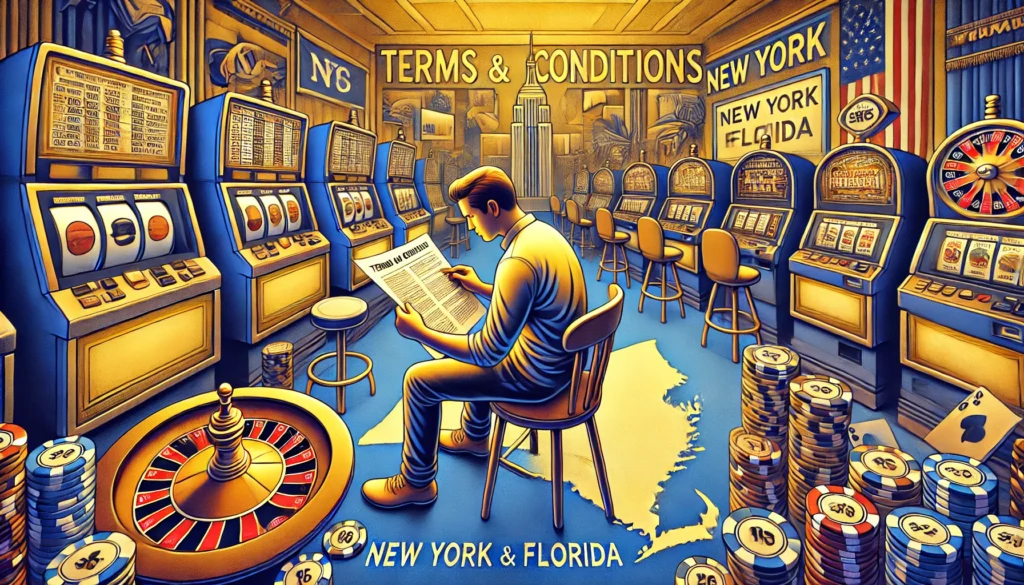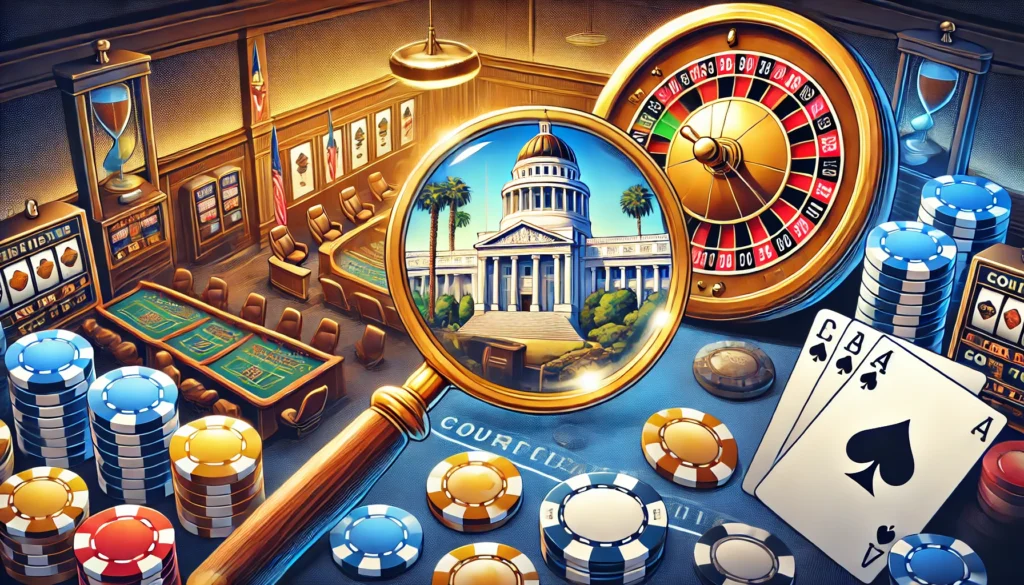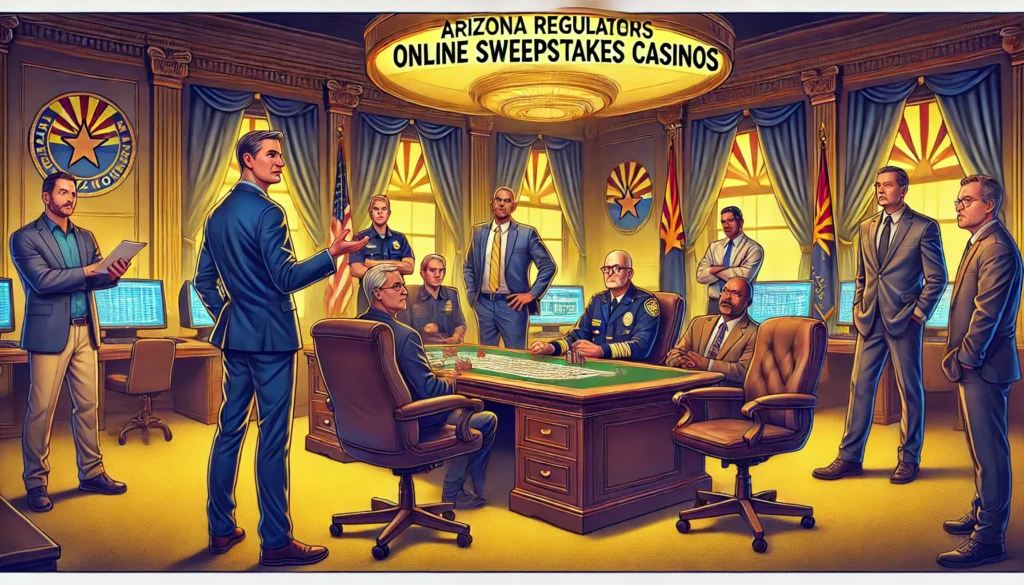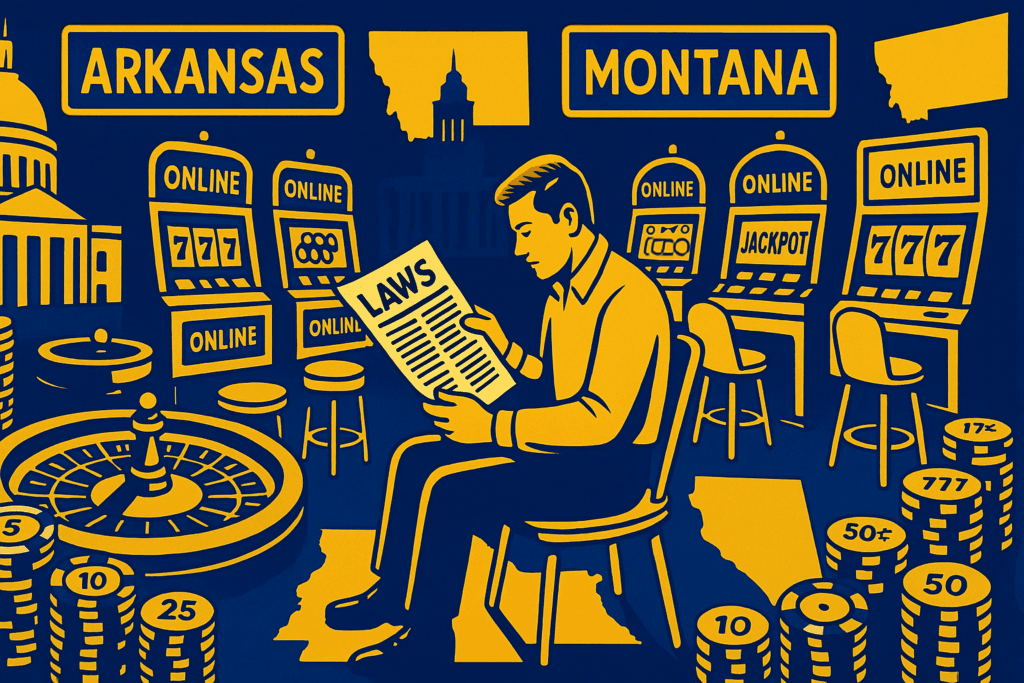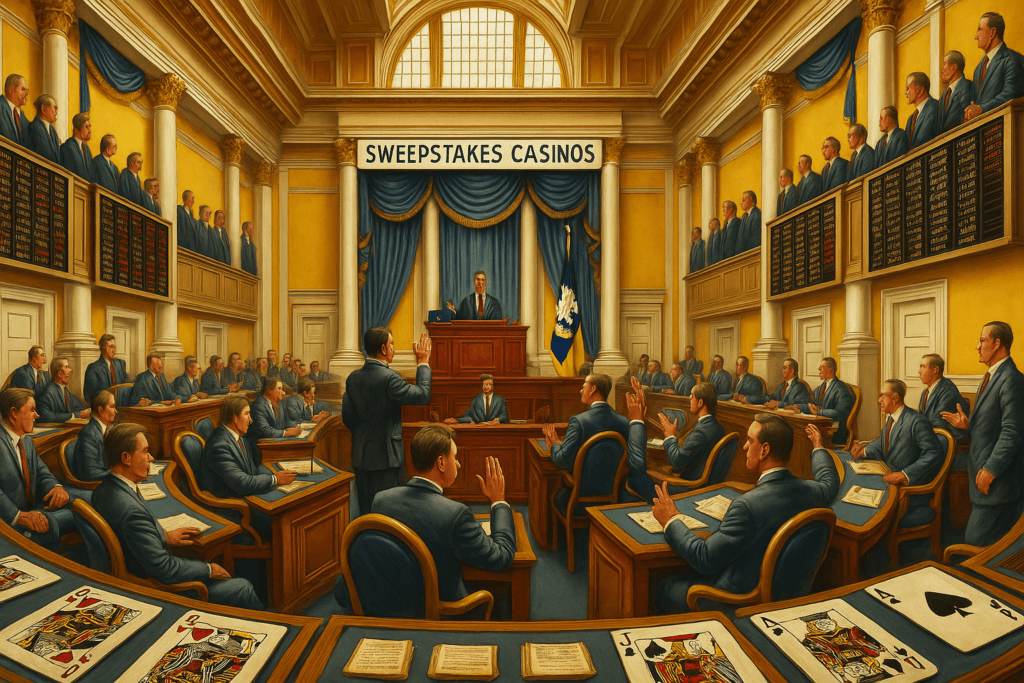Two states start the 2025 legislative session with pre-filed iGaming bills, but how likely are Maryland and Virginia to push them through?
Maryland is the frontrunner now in its second year with iGaming legislation on the table. Virginia has a chance too, following on recent momentum around casino gambling in the state.
The fact that online casino bills were pre-filed ahead of this year’s legislative session that began Jan. 8 is a strong sign for getting bills through in both states, at least eventually. Key opposition, however, could come from two land-based gaming operators, only one of which operates in both states.
If either Maryland or Virginia does beat the odds and join the seven U.S. states with regulated online casinos, it could also shift the sweepstakes gaming landscape.
Take Two for Maryland iGaming Bill
Maryland was home to the strongest momentum for an online casino bill in 2024. After Del. Vanessa Atterbeary’s House Bill 1319 passed the House by a vote of 92-43, it died in the Senate. Meanwhile, Sen. Ron Watson introduced a separate online casino bill in the Senate, which got a hearing in the Senate Budget and Taxation Committee before ultimately stalling out.
Hearings in both chambers revealed strong opinions on both sides of the issue. Despite the failed attempts, it’s possible that last year’s lessons and support from key lawmakers and casino operators could give the new Maryland iGaming bill more legs to cross the finish line in 2025 and land on the 2026 voters’ ballot.
Details of 2025 Maryland Online Casino bill
Atterbeary is the chair of the Ways and Means Committee where a new iGaming bill now resides. HB 17 is similar in detail to last year’s iGaming House Bill. Key details include:
- Maryland State Lottery and Gaming Control Commission to regulate and assign licenses
- Eligible licensees are video lottery operators and holders of sports wagering facility license
- Licensees must commit to invest at least $5 million in an in-state live gaming studio during the initial license term
- 5 additional licenses available through two competitive rounds
- Video lottery operators can attain an additional license by partnering with a “social equity applicant” with at least 33% ownership
Virginia joins the fray
Virginia will have a run at passing iGaming legislation this year too after Sen. Mamie Locke pre-filed an online casino bill that was referred to the Committee on General Laws and Technology. Proposed VA online casino details:
- Regulator: Virginia Lottery Board
- Licensees: Five retail casino operators in VA (only three currently open); Up to three skins each
- Application fee: $1 million
- Tax on revenue: 15%; 97.5% to the general fund and 2.5% to responsible gambling support
Heavy support but key opposition in Maryland
While most big casino brands support iGaming bill legislation, there are two key casino players fighting iGaming legislative efforts. In Maryland, Churchill Downs, owner of Ocean Downs Casino in Worcester County, and Maryland Live! owner Cordish Companies spoke in opposition to iGaming legislation during 2024 hearings.
Both regional casino operators are clinging to the argument that online casinos do more to cannibalize retail operations than to lift them up, despite overwhelming evidence to the contrary. Likewise, there is evidence against iGaming leading to retail job loss, but those fears also worked against legislative efforts last session.
Time will tell if the Maryland iGaming bill’s requirement for investment in live dealer studios in-state will help to alleviate some of those fears. Meanwhile, support for regulated iGaming has come from operators behind Maryland casinos MGM National Harbor, Horseshoe Baltimore, Hollywood Casino Perryville, and Rocky Gap Casino.
Chances in Virginia
In VA, the entities proposed to receive an iGaming license include the five approved land-based gaming operators: Caesars Entertainment, Boyd Gaming, Hard Rock International, Rush Street Interactive, and Cordish Companies. The first four gaming companies listed there have expressed favor for iGaming and have reaped financial benefits of adding online casinos to brick-and-mortar gaming facilities in states like Pennsylvania, New Jersey, and Michigan.
However, forthcoming Petersburg Casino operator Cordish Companies is likely to launch a counter-campaign similar to its efforts to stop iGaming legislation from passing in Maryland. A big question there will be whether the support for the bill is enough to outweigh Cordish and any other opponents to get a bill through to voters. If history is any indication, it could take more than one crack.
What sweepstakes operators stand to lose
One potential impact if MD or VA were to pass iGaming bills this year would be on the online gambling sites already operating in the state. These include dozens of sweepstakes casinos as well as offshore black market gaming sites that remain unregulated by gaming boards in the U.S.
Based on precedent, gaming boards in states with legal iGaming are more likely to invest effort and resources to exclude such sites from operating within their state borders. Three states, Michigan, Connecticut, and Delaware, sent cease-and-desist letters to sweepstakes gaming companies and/or offshore operators in 2024. All three are among the seven legal iGaming states in the U.S. Michigan is also one of a handful of states to explicitly outlaw sweeps sites.
The Maryland Lottery and Gaming Board reported at their Jan. 15 meeting they have sent ceast-and-desist letters to 11 illegal gambling operators including a number of sweeps sites.
If either Maryland or Virginia tips the scales to get an iGaming bill passed through the legislature in 2025, expect the regulatory environment to shift further out of favor of sweepstakes casinos in those states. Our state-by-state page will continue to monitor these updates.
Other gaming-friendly states likely to at least discuss iGaming bills in the current session include Illinois, Louisiana, New York, Indiana, and Ohio.


